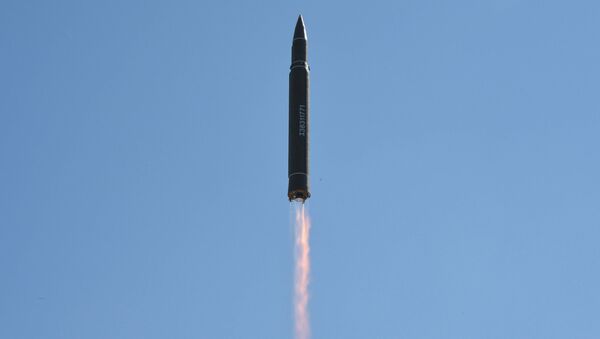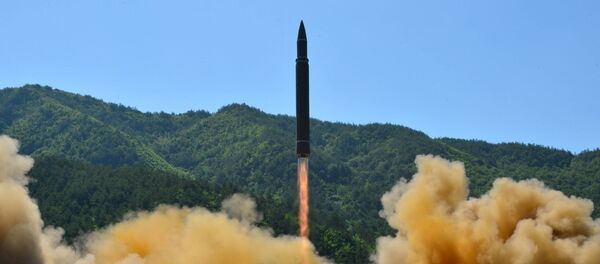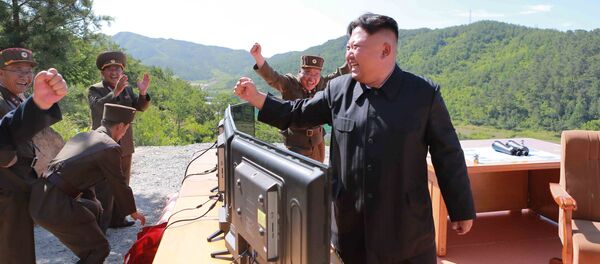MOSCOW (Sputnik) — The Japanese government considers Friday's North Korean missile test a clear violation of UN Security Council resolutions, Chief Cabinet Secretary Yoshihide Suga said.
"This is a clear violation of the UN Security Council resolutions. Continued provocative actions are unacceptable. We declare a strong protest to North Korea, condemn [the launch] in the most severe term," Suga told the NHK broadcaster.
Japan is calling on Russia and China to play an additional role in increasing pressure on North Korea over its latest missile test, the Japanese official said.
"We intend to continue increasing pressure on North Korea, insisting on extra role not only from us, the United States and South Korea, but also Russia and China," Suga told reporters.
The Pentagon also said that the DPRK launched an intercontinental ballistic missile on Friday, which traveled some 1,000 kilometers before flying down, media reported.
Moreover, South Korean military also believes the North Korean missile was an ICBM, according to Yonhap.
Earlier in the day, Japanese NHK reported that North Korea appears to have fired a missile which may have landed in Japan's exclusive economic zone. However, the broadcaster said that it could be just a projectile. The Kyodo news agency reported that the Japanese government was convening a national security council meeting in response to North Korea’s launch.
Later in the day, South Korean military confirmed the launch.
DPRK's move appears to be the first missile launch carried out by Pyongyang after its first successful ICBM test as North Korea and the US describe it.
On July 4, North Korea announced it had successfully launched its first intercontinental ballistic missile, saying it traveled 580 miles and reached an altitude of 1,740 miles during its 39-minute flight before accurately hitting a targeted area in the Sea of Japan. The test immediately prompted sharp criticism from the international community.
Following the launch, the Russian Defense Ministry disputed Pyongyang's claim, saying the missile's flight parameters indicated it reached an altitude of 535 kilometers (332 miles) and traveled 510 kilometers before falling in central Sea of Japan. However, US officials believe that Pyongyang had successfully launched an ICBM for the first time.




